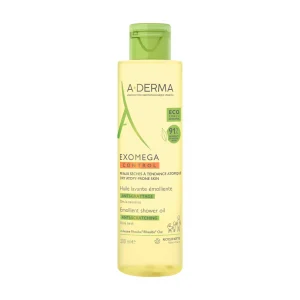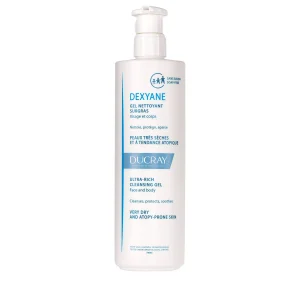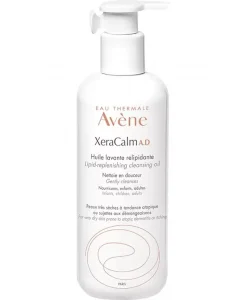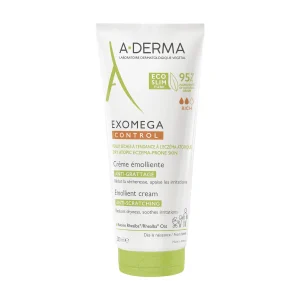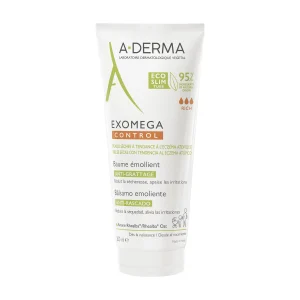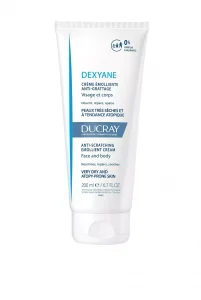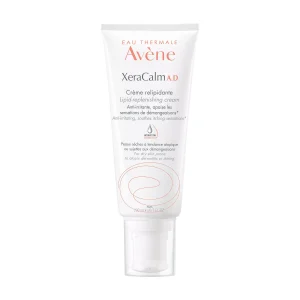
Do you notice circular, rough, red patches on your arms, hands, or legs? Do they itch a lot? You may have a flare-up of nummular eczema, a subtype of chronic eczema that is characterized by extremely itchy round or oval patches on the skin. Although this condition is treatable, it can be incredibly uncomfortable due to the itchiness and can recur even after treatment. To understand what exactly nummular eczema is, check out this article from The Dermo Lab in collaboration with the dermatologist Dr. Riham Sabry.
What are the signs and symptoms of nummular eczema?
The word “nummular” comes from the Latin word “coin,” as the spots can look like a coin on the skin. Nummular eczema, also known as discoid eczema, does not affect everyone who has it in the same way. According to Dr. Riham Sabry, nummular eczematous dermatitis is a specific type of eczema with coin-shaped patches, itching, and well-defined annular lesions. It may ooze fluid or be scaly in the center, making it similar to many other autoimmune or infectious skin conditions. She explains that it is not a fungal infection, but a type of eczema that occurs primarily on the extensor surfaces of the lower legs, upper extremities, and back of the hands.
Scratching intensely itchy spots can cause raw, open skin. If germs from your hands spread to the open skin, you may develop an infection. Signs of an infection include yellow or golden crusts.
This skin condition tends to occur more often in men than in women. Men usually have their first episode after age 50 and women before age 30. Some children with severe atopic dermatitis may also develop nummular eczema.
What causes nummular eczema?
There is no known cause for nummular eczema. However, many people with this skin condition have a personal or family history of:
- allergies
- asthma
- atopic dermatitis
People with nummular eczema also tend to have sensitive skin that is easily irritated.
According to Dr. Riham Sabry, the following factors can also contribute to the development of nummular eczema:
- Dry skin
- Wool, detergents, soaps, and rough clothing
- Frequent bathing (more than once a day)
- Temperature changes: Hot and cold weather often aggravates eczema
- Intense stress
- Dry air, heat, and humidity
- A skin injury, such as an insect bite or scratch
- A skin infection
- Excessive alcohol consumption
- Taking medication that can cause extreme dryness of the skin
How do dermatologists diagnose this condition?
It can be difficult to accurately diagnose nummular eczema because the rash can appear differently on various skin types. If the condition is suspected, your healthcare provider will perform a thorough examination of your skin. If your skin shows signs of infection, your dermatologist will take a swab from that area.
He or she may also perform a skin biopsy. This involves taking a sample of the affected skin for testing.
What is the differential diagnosis of nummular eczema? Dr. Riham Sabry lists the skin conditions that may look like nummular eczema:
- Ringworm
- A fungal infection (tinea corporis)
- Plaque psoriasis
- Allergic contact dermatitis
- Irritant contact dermatitis
- Cutaneous T-cell lymphoma
- Atopic dermatitis
- Pityriasis rosea
- Lichen simplex chronicus
The treatment of each rash differs greatly, so it is important to consult a health care professional for a proper diagnosis.
How to get rid of nummular eczema?
The main goals of nummular eczema treatment are to clear up your skin and relieve your discomfort. To do this, your treatment plan may include a treatment designed to:
1- Avoid irritating your sensitive skin:
Dry, sensitive skin is more likely to experience frequent flare-ups of nummular eczema. For this reason, your treatment plan may include instructions that can help you prevent skin irritation. It is important to wash your skin regularly at all stages of nummular eczema, as cleansing helps prevent infection of your now fragile skin.
You may need to use only a mild, non-drying cleanser to wash your skin, and apply it only to the skin that needs to be washed. Gentle cleansers and eczema cleansers are recommended because they are less drying and less irritating to eczema-prone skin.
Got all that? With this information in mind, here are several candidates for the best cleansers for eczema-prone skin.
A-Derma Exomega Control Emollient Shower Oil
Ducray Dexyane Ultra-Rich Cleansing Gel
Eau Thermale Avene XeraCalm A.D Lipid-Replenishing Cleansing Oil
2- Hydrate your skin:
You likely have extremely dry skin. To add moisture to your skin, and help it heal, you may need to:
- Take a daily bath or shower for up to 20 minutes in lukewarm water.
- Add bath oil to your daily bath. Bath oil can make your bathtub and skin slippery.
- Apply moisturizer as directed throughout the day. Bonus: apply it on wet skin a few minutes after bathing.
- Use a humidifier in your bedroom, and keep the room cool and moist.
Your dermatologist may suggest a hypoallergenic, unscented moisturizing cream or ointment instead of a lotion. Creams and ointments hold water in the skin better than lotions. More water in the skin can help you heal faster. Please note that moisturizers should not be applied on eczema lesions.
To make your life easier, keep scrolling for the best moisturizers for eczema.
A-Derma Exomega Control Emollient Cream
A-Derma Exomega Control Emollient Balm
Ducray Dexyane Anti-Scratching Emollient Cream
Eau Thermale Avene XeraCalm A.D Lipid-Replenishing Cream
3- Treat the patches on your skin:
To make eczema go away, your dermatologist will prescribe medication or mild treatments. Most people will apply one of these medications:
- Corticosteroid ointment
- Tacrolimus ointment or pimecrolimus cream
- Tar cream
All of these medications can reduce inflammation and itching.
For best results, you may need to apply your medication to wet skin immediately after bathing. This can help the medicine heal your skin faster.
Dr. Riham Sabry notes that for some people, a light treatment called phototherapy may be an option.
What lifestyle changes can help treat this condition?
You can manage your condition by making lifestyle changes and avoiding triggers. To help manage your nummular eczema, Dr. Riham Sabry suggests following these recommendations:
- Don’t take more than one bath or shower a day.
- Use lukewarm water, as hot water dries out the skin. When you wipe your skin, pat it dry, don’t rub.
- When bathing, limit the use of soap to the face, underarms, genital area, and feet. Soap irritates and dries the skin, so keep it away from eczema.
- Wear cotton clothes.
- Wash clothes using dye-free and fragrance-free detergents, such as “All Free” detergent.
Currently, there is no specific diet for nummular eczema. However, according to Dr. Riham Sabry, foods that can aggravate the condition include citrus fruits, dairy products, eggs, gluten or wheat, soy, spices, cinnamon, tomatoes, and certain types of nuts.
Last Updated on February 16, 2024

